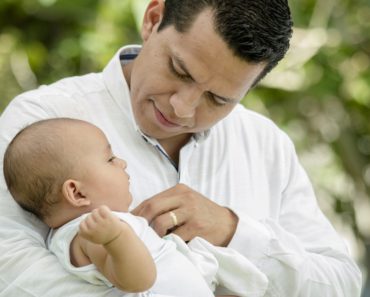Contents
- 1 Supporting Your Partner’s Mental Health After a Miscarriage: A Guide to Nurturing Emotional Well-being
- 2 Providing Emotional Support
- 3 Encouraging Seeking Professional Help
- 4 Practicing Self-Care Together
- 4.1 How can I provide emotional support to my partner after a miscarriage?
- 4.2 Are there any specific resources or support groups available for partners dealing with the emotional aftermath of a miscarriage?
- 4.3 What are some healthy coping mechanisms or strategies that I can encourage my partner to utilize during this difficult time?
- 4.4 Related Posts

Supporting Your Partner after a Miscarriage: Dealing with a miscarriage can be an incredibly challenging experience for both partners. we explore practical ways to provide emotional support and create a safe space for your partner during this difficult time. Learn how to navigate the complex emotions, communicate effectively, and offer understanding and unconditional love as you both heal together.
Supporting Your Partner’s Mental Health After a Miscarriage: A Guide to Nurturing Emotional Well-being
Supporting Your Partner’s Mental Health After a Miscarriage: A Guide to Nurturing Emotional Well-being
Miscarriages can be incredibly challenging for both partners, and it’s crucial to prioritize mental health during such a difficult time. Here are some strategies to support your partner’s emotional well-being:
1. Open communication: Encourage your partner to share their feelings and thoughts openly without judgment. Let them know that you’re there to listen and offer support.
2. Show empathy: Validate your partner’s emotions and let them know that it’s okay to grieve. Offer comfort and reassurance, acknowledging their pain and loss.
3. Be patient: Healing takes time, and everyone’s journey is different. Respect your partner’s pace and avoid pressuring them to move on. Patience and understanding are key.
4. Offer practical help: Taking care of daily responsibilities can feel overwhelming after a miscarriage. Step in and offer assistance with household chores, cooking, or any other tasks that may ease their burden.
5. Encourage self-care: Remind your partner to prioritize self-care activities that promote relaxation and healing. Encourage them to engage in activities they enjoy and to seek professional help if needed.
6. Normalize seeking support: Let your partner know that seeking help from a therapist or support group is a sign of strength, not weakness. Offer to accompany them to appointments or help them find resources.
7. Be mindful of triggers: Understand that certain situations or reminders may trigger emotional responses for your partner. Be sensitive to their needs and be prepared to offer comfort and understanding when necessary.
8. Take care of yourself: Supporting your partner’s mental health can be emotionally draining, so it’s crucial to prioritize your own well-being too. Seek support from friends, family, or a therapist if needed.
Remember, everyone’s experience with miscarriage is unique, and there is no right or wrong way to grieve. By providing a compassionate and supportive environment, you can help your partner navigate the emotional challenges and promote their overall mental well-being during this difficult time.
Providing Emotional Support
After a miscarriage, it is crucial for partners to provide emotional support to each other. This can be a difficult time emotionally, and both individuals may experience a range of emotions such as grief, guilt, anger, and sadness. It is important to create a safe space for open communication where both partners can express their feelings without judgment or criticism. Supporting each other through active listening, empathy, and validation can help alleviate some of the emotional burden.
Encouraging Seeking Professional Help
While partners can provide valuable support, it is also essential to encourage seeking professional help. Miscarriages can bring about complicated emotions and grief that might benefit from the guidance of mental health professionals. Suggesting therapy or counseling services can be beneficial for both partners to process their emotions in a safe and supportive environment. Recognizing the importance of professional care shows a commitment to one another’s mental well-being.
Practicing Self-Care Together
Taking care of oneself is crucial during the healing process after a miscarriage. Encouraging and engaging in self-care activities together can be a helpful way to support each other’s mental health. This might include engaging in activities that promote relaxation, such as meditation, taking walks in nature, or enjoying hobbies together. Additionally, ensuring adequate sleep, nutrition, and exercise is important for overall well-being. By prioritizing self-care individually and as a couple, partners can provide mutual support in maintaining positive mental health.
How can I provide emotional support to my partner after a miscarriage?
Are there any specific resources or support groups available for partners dealing with the emotional aftermath of a miscarriage?
What are some healthy coping mechanisms or strategies that I can encourage my partner to utilize during this difficult time?
Encouraging healthy coping mechanisms and strategies for your partner during difficult times can greatly support their mental health. Here are some suggestions:
1. Active Listening: Be present and attentive when your partner wants to express their feelings or concerns. This helps them feel heard and validated.
2. Self-Care: Encourage your partner to prioritize self-care activities that promote relaxation and reduce stress. This can include exercise, getting enough sleep, maintaining a healthy diet, and engaging in activities they enjoy.
3. Mindfulness and Meditation: Suggest practicing mindfulness or meditation techniques to help your partner stay grounded in the present moment. This can reduce anxiety and improve overall well-being.
4. Seeking Support: Remind your partner that it’s okay to seek professional help if needed. Encourage them to access therapy services or support groups to talk about their feelings and learn additional coping skills.
5. Journaling: Suggest keeping a journal as a way for your partner to process their emotions and gain clarity. Writing down thoughts and feelings can provide a sense of release and help reduce stress.
6. Physical Activity: Encourage your partner to engage in regular physical activity as it promotes the release of endorphins, which can improve mood and reduce anxiety.
7. Breathing Exercises: Teach your partner deep breathing techniques to help them relax during moments of stress or anxiety. This can be a simple yet effective coping strategy.
8. Positive Distractions: Encourage your partner to engage in activities that bring them joy, such as hobbies, listening to music, watching movies, or spending time with loved ones. These distractions can help shift focus away from negative thoughts.
Remember, it is important to support your partner and offer help, but also respect their autonomy and allow them to take ownership of their mental health journey.
In conclusion, supporting a partner after a miscarriage is crucial for their emotional well-being and mental health. The grief and loss experienced during this time can be overwhelming, so it is essential to provide unconditional love and understanding. Encouraging open communication, seeking professional help if needed, and creating a safe space for healing are all essential components of support. Remember, everyone grieves differently, so it’s important to be patient and empathetic throughout the process. By being there for your partner, you can help them navigate through this difficult time and contribute to their overall mental well-being.







